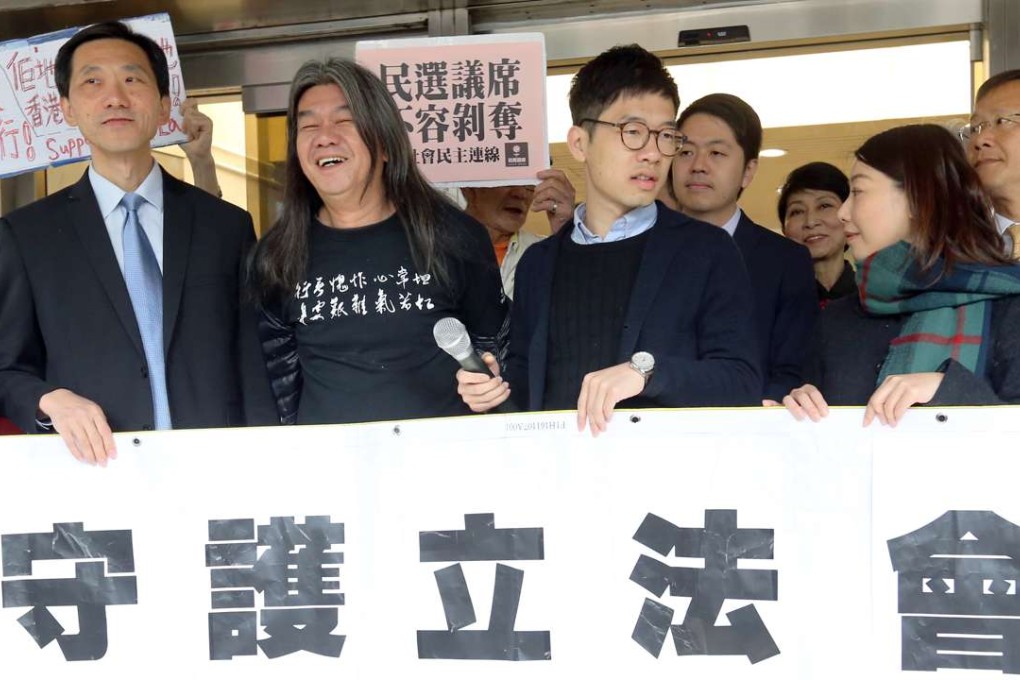Court asked to disqualify four Hong Kong lawmakers for ‘theatrical’ oaths carrying political messages
Prosecution says declarations fell short of legal requirements, but defence counsel argues they can only be unseated for refusing or neglecting to take oath

Government lawyers asked a court on Wednesday to disqualify four pro-democracy legislators for “embedding messages” into oaths that were read in a “theatrical performance” when they were supposed to pledge allegiance to Hong Kong at their swearing-in.
But defence counsel Martin Lee Chu-ming SC countered that the government could only unseat a lawmaker if it proved he or she had refused or neglected to take the oath.
“They failed to take the oath as required by law but they didn’t refuse to take the oath,” he told High Court judge Mr Justice Thomas Au Hing-cheung.
Watch: Lau Siu-lai takes oath in slow motion
Lee was referring to university professor Edward Yiu Chung-yim, former Occupy student leader Nathan Law Kwun-chung, lecturer Lau Siu-lai, and his client, veteran activist “Long Hair” Leung Kwok-hung.
